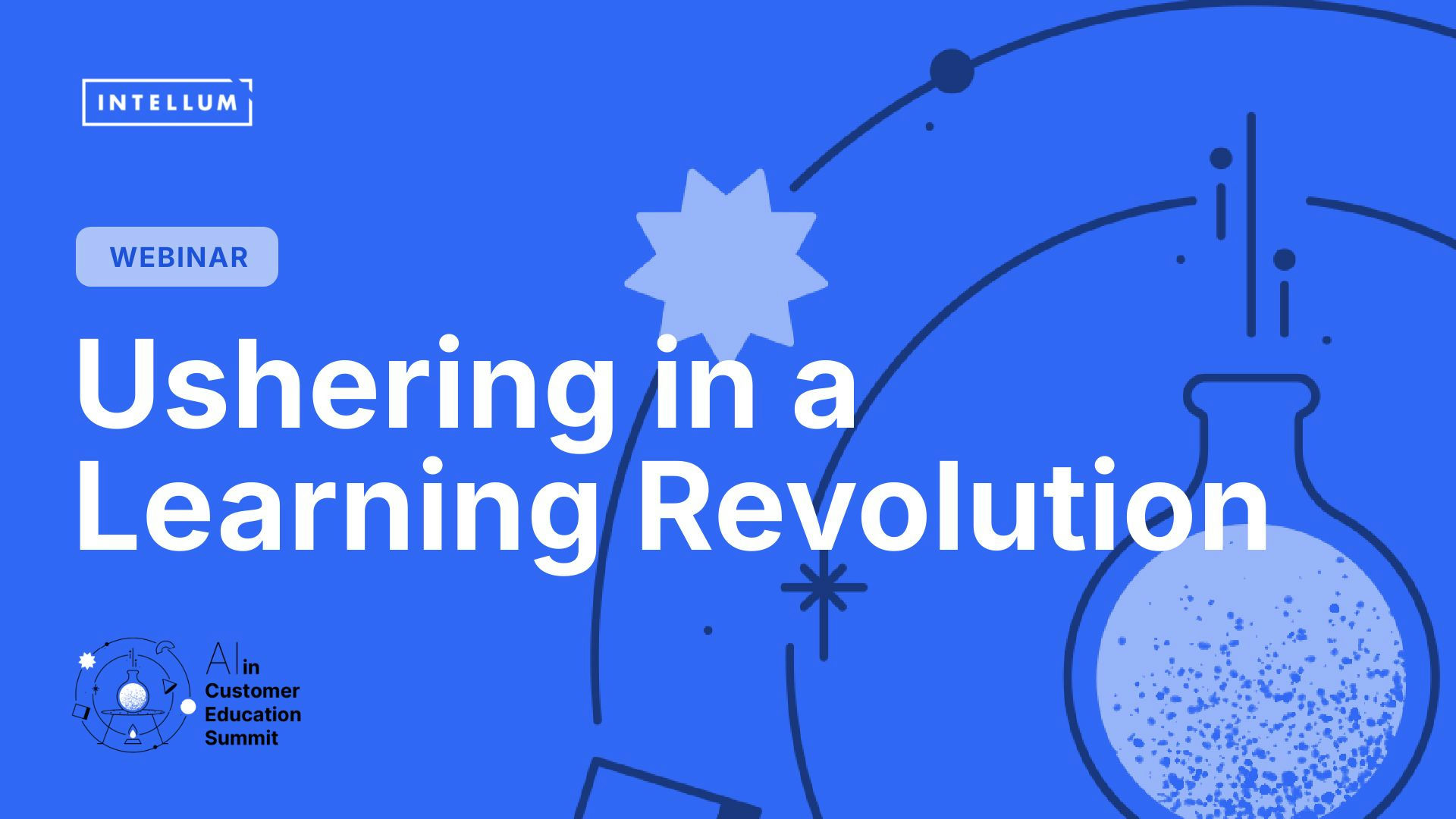Generative Artificial Intelligence (AI) has gained the reputation of one of two things: it offers little enduring value or impact, or it’s the solution to doing more with less.
With the right strategies in play, AI can push the boundaries of what’s achievable in edtech today—serving as the cornerstone of an entire learning revolution.
As part of Intellum's recent AI Summit, we heard from Anderson Campbell, Sr. Product Marketing Manager and Jeff Steinke, VP of Product, about how AI is being applied to education programs.
This can be done in a number of ways, and here are four to consider:
1. Personalize Learning
We know that personalized learning leads to better learning outcomes, but how can you personalize content at scale? The thought alone can be daunting.
This is where AI can help. AI can analyze learner data to identify patterns and preferences, then create individualized learning paths based on the learner's progress, strengths, and areas for improvement.
In fact, this is what Intellum’s AI Personalized Learning does. Through an interactive conversation with an AI Assistant, learners receive a tailored learning plan.
This triggers a domino effect: tailored learning experiences ensure that the educational content presented meets the individual needs, preferences, and abilities of each learner. This approach then ensures that the learning process is more relevant, engaging, and effective. As a result, learners feel that the content is relevant to them and are therefore more motivated and confident in their abilities.
The outcome? Learning objectives are met, and business objectives (e.g., improved performance or increased product adoption) can be achieved more quickly and easily.
2. Automate Learning Objectives
Like content creation, crafting learning objectives can be monotonous, and yet is mission critical to later assess the effectiveness of the learning experience. Learning objectives help the learner understand what they’re about to dive into, and what they should be learning as a result.
AI can quickly scan and analyze your existing educational materials to identify key concepts and necessary skills, ensuring that learning objectives are comprehensive and cover each topic addressed in the material. The keyword here is “quickly.” It can also continually update learning objectives as new content is added or as the educational needs of customers evolve.
3. Automate Assessment Creation
How many people like creating assessments? For many of us, this is one of the most time-consuming and least-interesting parts of curriculum development. But it’s also a necessary one to measure learning efficacy.
AI can use education content and learning objectives to generate assessment questions. One customer using Intellums AI-generated assessments found that their team saved an hour of development time per assessment—freeing up time for more other education priorities.
One unexpected benefit of using AI-generated assessments? It can help you spot opportunities to improve content. Melody Moore, Learning & Development Consultant at Accenture, shared during her AI Summit presentation that when AI-generated assessment questions missed the mark, it often highlighted a part of the content that wasn’t as clear as it could be. If AI, which is basing its output off your input, can’t figure out the learning objective, it’s very likely the learner won’t be able to, either.
4. Accelerate Content Creation at Scale
One of the most time-consuming components of running an education program is writing and developing curriculum for each learner persona. This process is typically fraught with inefficiencies and requires an incredible amount of manual effort.
With the advent of tools like ChatGPT, content can be generated rapidly, enabling the creation of large volumes of material in a fraction of the time. By adhering to predefined guidelines and standards, AI-generated content can help maintain uniformity and reduce the variability that can occur with multiple human authors.
So what?
As content is generated more efficiently, it can also be generated more creatively. AI can provide new templates and models, suggest improvements, and enhance the overall creativity of the educational material. This eliminates the heavy lift of ensuring that the learning material remains up to date and dynamic.
Looking Ahead
You may be thinking, “Okay, and?”
The cumulative result of leveraging AI for your education program is a hyper-personalized learning environment where the learner is set up to thrive.
And sure, there will be some challenges, so let’s acknowledge those:
- The source content that you’re feeding AI has to be quality. Think of it as garbage in, garbage out; AI relies on the quality of the input data you give it to produce accurate and useful insights.
- A learning curve may be part of the adoption process, and that’s okay. Consider introducing AI tools incrementally to allow users to adjust and integrate AI functionalities smoothly into their workflows
- As with any technology, there are and will be bugs as AI continues to evolve. Involve your SMEs (Instructional Design Experts, for example) in the quality assurance testing process.
AI is not just a futuristic concept – it's a practical tool that's enhancing how education is delivered today.
For a deeper dive into how Intellum is building AI to support education teams, tune into the full webinar.




.png)

